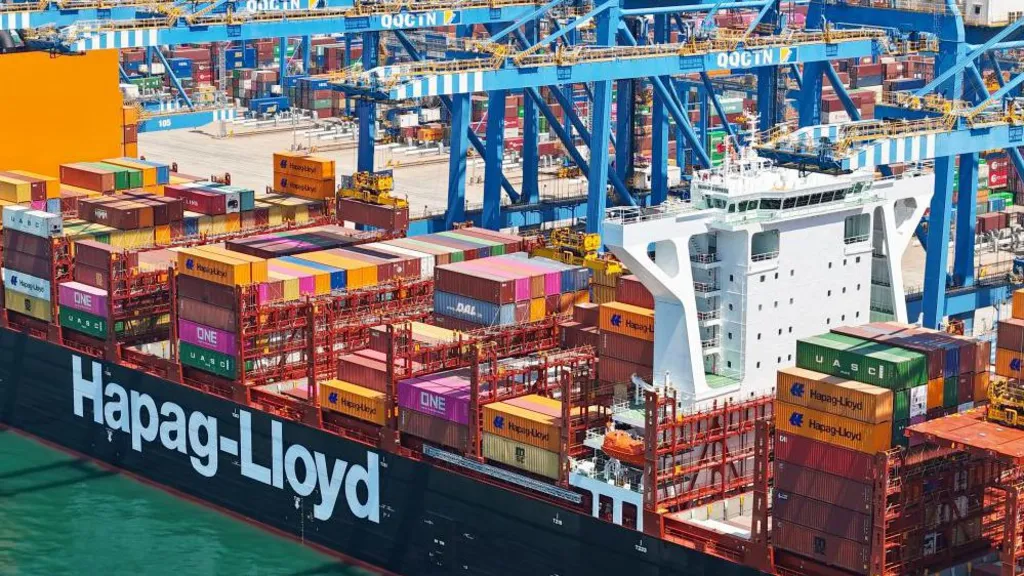Cargo Tracking System Could Save Nigeria N900 Billion Annually in Revenue Leakages
LAGOS, Nigeria – In a push to plug gaping holes in its trade revenue, Nigeria stands to recover an estimated N900 billion annually through a robust cargo tracking system, according to a new policy brief from the Sea Empowerment and Research Centre (SEREC). The International Cargo Tracking Note (ICTN), a digital pre-verification tool for shipments, could slash leakages from falsified manifests and illicit transshipments, experts say. With ports like Apapa already piloting similar tech, the initiative signals a turning point for Africa’s largest economy amid ongoing implementation hurdles. (58 words)
Understanding the ICTN: A Game-Changer for Nigeria’s Ports
The International Cargo Tracking Note (ICTN) is an electronic pre-arrival system that mandates shippers to submit detailed cargo manifests before vessels dock. Adopted in over 27 African countries, it enables real-time monitoring of inbound and outbound goods, from value declarations to volume assessments. In Nigeria, where ports handle over 90% of non-oil imports worth $50 billion yearly, the system addresses chronic issues like under-invoicing and smuggling.
SEREC’s commentary, released on November 20, 2025, estimates that without ICTN, annual losses from non-standardized declarations and concealed transshipments range between N800 billion and N1.2 trillion. “This pre-verification shifts regulators from reactive to proactive intelligence,” said Chinedu Nweke, SEREC’s director of research. By integrating with the Nigeria Single Window Trade Portal, ICTN could cut clearance times by 25-35% and malpractices by 40% within 18 months, fostering credibility in West Africa’s maritime hub.
Nigeria’s Federal Executive Council approved ICTN’s reintroduction in February 2023, selecting partners like Antaser Nigeria Limited for rollout. Yet, as of late 2025, full enforcement lags, with pilots focusing on seaports before expanding to land and air borders.
The N900 Billion Windfall: Breaking Down Projected Savings
SEREC’s N900 billion figure isn’t pulled from thin air—it’s rooted in forensic audits of port revenues. Under-declaration alone siphons off 10-15% of import duties, per Nigerian Customs Service (NCS) data, equating to roughly N700 billion in a sector generating N5-6 trillion annually. Add concealed crude oil exports—estimated at 200,000 barrels daily lost to theft—and the total balloons.
The system would enforce accurate invoicing via the Pre-Arrival Assessment Regime (PAAR), cross-verifying commercial and statistical values. Beyond revenue, it trims demurrage costs: Vessels idle an average of five days at Nigerian ports, costing $20,000 daily, or over N5.4 billion yearly from past interventions like the National Port Process Manual. ICTN’s real-time alerts could halve these delays, injecting liquidity into the blue economy.
- Key Projected Benefits:
- Revenue Recovery: N900 billion annually from leakages.
- Clearance Efficiency: 25-35% faster processing, reducing trader costs.
- Anti-Smuggling: 40% drop in illicit trade, including arms and oil theft.
- Economic Boost: Aligns with President Tinubu’s trillion-dollar economy goal by 2027.
These gains position Nigeria competitively against neighbors like Ghana, where similar systems have boosted GDP contributions from ports by 2-3%.
Recent Milestones: Apapa’s ECTS Pilot and NSC’s Push
Momentum built in early 2025 with the NCS Zone A’s officer-tracking system, which streamlined cargo transfers and cut bottlenecks. But the spotlight fell on November 5, when Apapa Command—the nation’s busiest port—launched the Electronic Cargo Tracking System (ECTS) on a Kano-bound container. Comptroller Babatunde Olumoh described it as a “digital shield” for security and revenue, enabling GPS-monitored journeys from quay to destination.
Comptroller-General Bashir Adeniyi, World Customs Organization chair, championed ECTS as a best-practice import, already live in countries like Kenya and Senegal. Meanwhile, the Nigerian Shippers’ Council (NSC) targeted Q3 2024 for ICTN kickoff, now eyeing early 2026 amid partnerships with the National Security Adviser and NCS. “It’s pivotal for Tinubu’s Renewed Hope Agenda,” NSC’s Pius Akutah affirmed, linking it to diversified revenue streams.
These steps build on the NG-eCTN, operational since June 2023 for simplified clearances across agencies.
Hurdles Ahead: Corruption and Delays Stalling Progress
Despite approvals, ICTN’s rollout has hit snags. A May 2024 BusinessDay investigation revealed corruption and power tussles blocking €45 million in remittances for the Third Party Monitoring System (TPMS), a tracking precursor. Preferred bidders like Antaser faced sabotage from entrenched interests profiting from opacity, sources said. “Billions in potential revenue are lost while officials bicker,” one insider noted.
Broader logistics woes compound this: Poor road networks and insecurity inflate haulage losses by billions, as highlighted by SysServe Solutions in June 2025. Without addressing these, ICTN risks partial impact. Minister Adegboyega Oyetola pledged commitment in 2023, urging customs collaboration on abandoned cargoes. Critics, however, call for anti-corruption safeguards, like independent audits, to ensure funds reach implementation.
- Major Challenges:
- Corruption Allegations: €45 million TPMS funds unaccounted for.
- Timeline Slips: From 2024 target to potential 2026 rollout.
- Infrastructure Gaps: Insecurity and roads hinder full tracking.
- Stakeholder Buy-In: Resistance from beneficiaries of status quo.
Broader Economic Ripple: From Ports to National Growth
ICTN’s promise extends beyond ports, fortifying national security by curbing arms smuggling and oil theft—key to stabilizing forex reserves at $35 billion. For traders, it means lower costs and predictability, potentially lifting AfCFTA participation. The NSC estimates port digitalization could add 1-2% to GDP, aligning with global trends where tracked trade boosts efficiency by 20%.
Private players like Cartrack Nigeria already offer fleet solutions, tracking vehicles and cargo in real-time to cut theft. Scaling ICTN nationally could integrate these, creating a seamless ecosystem.
In closing, the cargo tracking system’s potential N900 billion annual lifeline underscores Nigeria’s untapped maritime wealth, but only if corruption yields to resolve. As pilots like ECTS prove viability, swift full deployment could transform ports into revenue engines, easing economic pressures and securing trade futures. Stakeholders must act now—delays cost more than money; they cost progress. (52 words)
For official updates, visit Nigerian Shippers’ Council.
